If a child who experienced a traumatic event does not receive the help they need and deserve, these harmful adverse effects can follow them well into adulthood. Continue reading to learn more about trauma care for a child.
WHAT IS A TRAUMATIC EVENT?
The National Institute of Mental Health (NIMH) defines a traumatic event as a shocking, scary, or dangerous experience that can affect someone emotionally and physically. If the event occurs before 18, it is called an adverse childhood experience (ACE). ACE’s pose significant risks to child development.
Some examples of ACE’s children experience include:
- Emotional abuse by a parent
- Physical abuse by a parent
- Sexual abuse by anyone
- Emotional neglect
- Physical neglect
- Loss of a parent
- Growing up with an alcohol or drug abuser (or both) in the household
- Living with a family member experiencing mental illness
- Experiencing the incarceration of a household member
WHAT ARE SOME SIGNS OF TRAUMA IN CHILDREN?
Every child experiences trauma differently. The NIMH explains that responses to trauma can be immediate or delayed, brief or prolonged. Reactions to trauma in children can also range in severity and differ based on age.
Signs to be aware of in children ages five and younger include:
- Cling to parents or caregivers
- Cry and be tearful
- Have tantrums
- Experience physical problems
- Return to behaviors such as bed-wetting and thumb-sucking
- Show increased fearfulness
- Incorporate aspects of the traumatic event into imaginary play
Signs to be aware of in children ages six to 11 include:
- Have school-related problems
- Isolate themselves
- Have nightmares or experience other sleep-related issues
- Become irritable or angry
- Be unable to concentrate
- Experience physical problems
- Develop fears
- Lose interest in activities
Signs to be aware of in adolescents ages 12 to 17 include:
- Have nightmares or other sleep-related problems
- Avoid reminders of the event.
- Use drugs, alcohol or tobacco.
- Be disruptive, destructive or disrespectful
- Experience physical problems
- Isolate themselves
- Be angry or resentful
- Lose interest in activities
In some cases, children who experience traumatic events will develop post-traumatic stress disorder. Sadly, approximately one in four children in foster care will experience post-traumatic stress disorder (PTSD). If your child or foster child has experienced PTSD, they may not show any symptoms. However, there are typically four symptoms associated with this condition; they are as follows:
- Re-experience or remembering (often in the form of flashbacks or nightmares)
- Avoidance (of the event or memories concerning it)
- Negative cognitions or mood (alienation or negative beliefs)
- Alterations in behavior (like recklessness or persistent sleep problems)
HOW TO HELP A CHILD HEAL FROM TRAUMA
If you are a parent or caregiver to a child that has experienced trauma, you have an essential role to play. Children who experience traumatic events can lose their sense of safety and security. Therefore, you must show them love, understanding and give them support as they begin to heal.
Consider the following tips to help traumatized children in their recovery:
- Make the child feel safe
- Remain calm
- Maintain routines as much as possible
- Help the child find joy
- Be open about what happened
- Limit or prevent news coverage
- Understand each child copes differently
- Listen
- Find ways to help the child relax, such as deep breathing
- Acknowledge their feelings
- Understand you will not know all the answers
At Burlington, we also provide different professional services to help children who have experienced trauma, including:
Community-based Therapy
Community-based therapy is provided to children and adults in our care and throughout our local communities. Typically, we direct this therapy program towards children ages three and older that have suffered from abuse and neglect.
Foster Care
We entered the foster care ministry in 1985, and since then, it has grown into one of our most extensive programs. Children that experienced abuse and neglect or have emotional or physical challenges or circumstances that make them unable to live with their family of origin are eligible for foster care services. Our foster care team works closely with families and clients to make foster care life enjoyable.
Safe at Home
Safe at Home provides services to at-risk youth ages 9 to 17 in their local communities. We work to get what is needed to help families ensure that their children remain safely at home whenever possible.
SARAH’S House
SARAH’S House (Sexual Abuse Response And Help) is a child advocacy center that provides services to children victimized by sexual abuse, physical abuse, drug endangerment, witness to violence, sexual exploitation and exposure or depiction in child pornography. SARAH’S House strives to reduce the trauma that the victims experience and enhance the ability to respond to child maltreatment. SARAHs House officially serves Mineral and Hampshire county while providing courtesy services to Grant, Hardy and Pendleton counties.
HAVE QUESTIONS OR NEED A HELPING HAND? CONTACT BURLINGTON TODAY
Since 1913, Burlington United Methodist Family Services, Inc. has dedicated itself to changing lives by providing hope and healing to those who are hurting. If your child or a child you know has experienced a traumatic event and is struggling, please reach out to us. Sometimes, children need professional help in their journey to healing. If you have any questions, please contact us at 304-260-5884 or foundation@bumfs.org.
“For I know what I have planned for you,” says the Lord. “I have plans to prosper you, not to harm you. I have plans to give you a future filled with hope.” — Jeremiah 29:11
